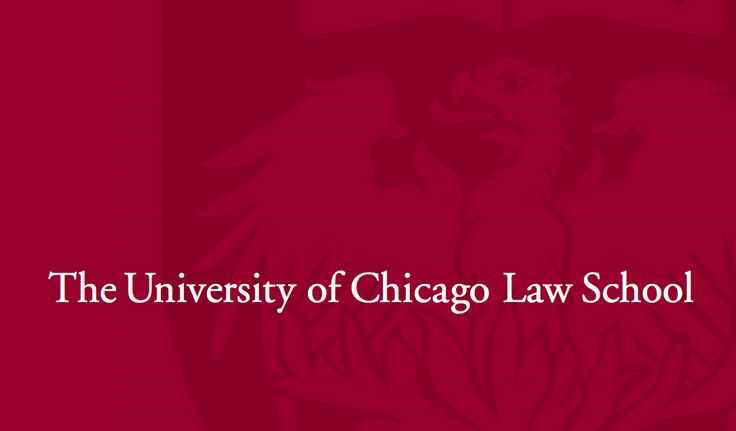
***重要***
芝加哥大学Admission office内部信件
Inside the Minds of the People Who Read your Application
Our current students will occasionally ask me why they were offered admission. Another version of that question comes from applicants who were not offered admission: What can I do to improve my chances of admission if I decide to apply to Chicago in the future? Although people who post on various message boards seem to know the answers to these questions, at least for themselves, the short answer is that for any particular student or applicant there is no way to answer those questions with respect to Chicago or most other schools to which people apply. The weight given to various factors in an application will depend on 1) the applicant’s particular situation and 2) the way an individual reviewer thinks of those factors. There are, however, some general observations I can make which may help you to understand what is behind the decisions you will receive on your applications.
The first thing to remember is that the application review process is generally done by several people who are part of a committee, the Graduate Studies Committee in the case of Chicago. These people review the applications individually, make their judgments and then pass on their votes. At Chicago, it is unusual for the Committee to meet to discuss an application and members of the Committee do not offer explanations for how they voted. Given this process, it is hard to identify why a particular candidate is or is not admitted because different members of the Graduate Studies Committee may have different reasons for their votes on an application. Reviewers may give different weights to the various factors in the same application. Thus, unless an applicant has not satisfied our published TOEFL or IELTS minimum scores, it is not possible to state why the Graduate Studies Committee made the decision it did on any particular application. It is possible, though, to discuss the various factors more broadly.
We say in our application materials that admission decisions take into account a candidate’s academic and professional background. In situations where we are considering applicants who are currently in school or are recent graduates, there understandably may not be much of a professional career to consider. Our faculty often tell me that they appreciate the perspective which experienced lawyers can bring to the discussions in their classes. As a consequence, our Graduate Studies Committee tends to favor candidates who have been working for a while before they come to Chicago. This factor will be balanced with our desire to have a variety of countries represented in the class. For example, there are certain countries in Europe where most of our applicants do not have extensive work experience so that becomes less important to us. As a general proposition, it is fair to say that the Graduate Studies Committee prefers experienced applicants from a country if they are available in the applicant pool.
Our ability to evaluate prior academic performance depends to a large extent on the information we have available. There are some applications where we have clear indications about how an applicant has done in comparison with other students. Examples would be class rank information, graduation honors or state examination results. In many cases, however, we do not have such clear guidance. This tends to mean that reviewers will place less weight on that factor. There are also applicants, such as those in many South American countries, who worked with employers on a part time basis while they were in school. That often means they have had to balance their work with academic demands so we may put less weight on their overall academic performance.
The weight we give to recommendation letters also varies from application to application and from letter to letter. We have reason to believe that recommendation letters sometimes are written by the applicants themselves and are only signed buy the recommender. This seems to be the case in certain countries – or so our students tell us. Naturally, we tend to find those letters not very helpful. The most useful letters come from people who are either familiar with Chicago or the demands of U.S. law schools generally. We are inclined to put the most weight on letters submitted by our own graduates for two reasons: 1) they are very familiar with what it means to be a student here and 2) since they attended Chicago they have a vested interest in being honest with us about a candidate’s qualifications because they want only the most promising people to return to their countries and carry on the reputation of the Law School. Letters from employers who have worked in English with a candidate, or who indicate that they hope to have the applicant return to them after the LL.M. program are also likely to be given more weight.
Application personal statements provide us with useful information about a candidate but their value as an indication of writing ability is limited. We do not know how many “editors” helped to revise the statement. As a consequence, a poorly written personal statement can certainly weaken an application but a well written one is not likely to have the same positive value.
The process of selecting the “best” candidates from a very talented applicant pool is not easy. We know that every year we will not be able to offer admission to many people who we would like to have in our program. I hope that my observations will at least give you some insight into the complexities of how we consider the factors in your applications.
学律教育顾问中心的团队包括了美国执业律师 (JD),英国执业律师,外籍英语文学教授/Ph.D, 外籍语文学专家等,已经成功协助上百位申请者取得许多美国/欧洲 顶尖学校 (包括Harvard, Stanford, Columbia, LSE etc.)的青睐!
每一位的申请者都由学律顾问群与申请者做一对一的深度讨论,透过不断讨论,扣紧所有相关的文件与学经历 共同 创造出 最佳的申请文件 (Application Package),取得最理想的学校的青睐!
